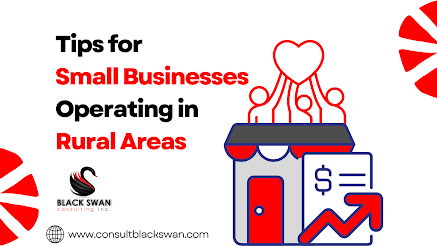5 Methods of funding for Small and Medium Sized Businesses
Since Covid's occurrence in 2020, the world essentially came to a halt. Businesses are finding it increasingly difficult to operate when millions of people are dispersed because of the expanding public health issue. Those who did manage to sustain their businesses did so only because they had the appropriate strategy and financial planning in place. But what about firms that have limited understanding of finance techniques and appropriate tactics to utilize? Money is used to run a company, like fuel being used to run a car. If a firm requires funding, it will eventually have an impact on its operations, contributing to business failure. There are a variety of ways to acquire finance; a company must select the one that best meets its needs, so it is able to adhere to the conditions. Some common options to consider include angel investors, friends and family, bootstrapping, crowdfunding, and bank loans. A company may require financing for a multitude of reasons, including keeping enough working capital, acquiring assets, expanding the company, debt restructuring, etc. Let's take a closer look at the various funding options to see which one best matches your company's needs.
Angel Investors:
Angel investors are prominent individuals who are interested in investing in small and medium-sized enterprises in exchange for a share of equity, or ownership. Not only can they add monetary value to businesses but can also contribute their expertise, knowledge, and contacts. A company must be aware of what angel investors usually take into consideration while providing funds to companies. They are primarily interested in professional management, potentially profitable enterprises, and profound business training in the understanding of products and services. Businesses can now connect with these investors effortlessly and may locate them on several websites with the help of the Internet. For instance, you may find Angel NV in Nevada or Florida Funders in Florida as options. When a company's donated resources are depleted, it's typical for the owner to pursue this type of funding. This route may be the ideal choice for businesses that are well-established enough to have succeeded through the startup phase, but remain in the early stages of growth and require capital to develop a product or fund other operations.
Friends and
Families:
Bootstrapping:
Bank Loans:
Receiving
bank loans for your business involves a system of checks and balances. To
maximize the potentiality of your business, you must communicate effectively.
It entails having adequate business strategies, the intention and utilization
of funds, maintaining proper financial records that satisfies bank's standards,
and much more. You must be able to demonstrate to the bank that you will make
timely payments. Before asking for a bank loan, one should exercise caution
because failing to repay the debt, including interest, may end in bankruptcy.
Business owners should only apply for business loans if they are necessary;
otherwise, they should consider other options. This approach may be the best
alternative for the owner, especially if he or she wants to keep ownership.
Businesses can take advantage of the low interest rates and simple repayment
alternatives offered by several institutions. When cash flow is low, a business
loan may be quite beneficial. You can apply for loans tailored to the direct
business needs, as there are various forms of loans available. For example, the
SBA 504 loan is intended for the financing of large fixed assets that
will position a company for growth. Other community development financial
institutions (CDFIs) also offer short term and long term loans that are
specific to community based businesses.Crowdfunding:
Crowdfunding is the process of raising minimal
quantities of money from a wider target audience, however there are several
platforms where you may do so. Kickstarter, Crowd Supply, Crowdfunder, among
many others come to mind. To be clear, we are not selling any equity; instead,
we are receiving a sort of contribution, and by choosing this option, we may
not only get cash but also create networks. If a fundraising campaign is
successful, crowdfunding sites generally charge a fee to the fundraiser.
Crowdfunding platforms are required to deliver a safe and user-friendly service
in exchange. According to Nav.com, there are also several forms of crowdfunding
such as:
● Rewards crowdfunding
● Donor crowdfunding
● Debt crowdfunding
● Equity crowdfunding
These five methods of funding are available as
possibilities and could potentially help in obtaining the capital you need to
build the firm of your dreams. It is
critical for every entrepreneur to identify the best strategy for obtaining
funding for their company. If you're having difficulties deciding which choice
is ideal for you, consider contacting a consulting firm like Black Swan
Consulting, Inc., who can walk you through the process of determining which options are
best for your company.

.png)

Comments
Post a Comment